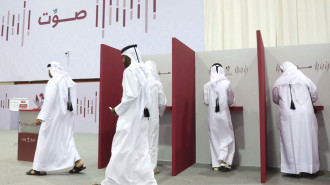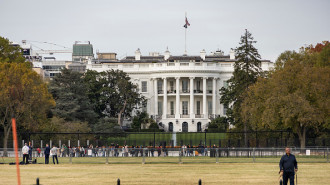Syrian aid groups angered over 'biased' BBC report linking opposition police to al-Qaeda
The BBC Panorama report, titled Jihadis You Pay For, will allege that UK taxpayer money paid to the Syrian civilian group had reached people with links to the jihadist group al-Nusra Front, according to The Observer.
The programme says it will shed light on "how some of the cash has ended up in the hands of extremists and how an organisation we are funding supports a brutal justice system".
Adam Smith International (ASI) - which manages the UK-funded Access to Justice and Community Security (Ajacs) scheme that supports the FSP in rebel-held areas of Syria - told the British newspaper the BBC claims are "entirely inaccurate and misleading".
An ASI internal review had found that of $20 million in funds for the FSP, "only $1,800 unwittingly fell into the hands of FSP officers with links to extremist groups, and the cash was not British taxpayers' money but from other state donors".
ASI has called on the BBC to amend the title of its programme accordingly.
However, the BBC said in response that it "is confident in its journalism and the investigation will be broadcast in full".
Andrew Mitchell MP, a former international development secretary, told The Observer it was inevitable the FSP would come into contact with extremist groups but warned against the BBC jumping on an "anti-aid bandwagon" and not taking into account "the risks and difficulties faced in trying to offer communities policing outside of the control of the Assad regime".
"This is an extremely important project devised with the aim of strengthening the FSP in dangerous areas where jihadi groups are in operation," Mitchell told The Observer.
The UK and other Western powers have provided aid to both Syrian refugees and moderate rebels, but much of the military assistance programmes have been cancelled over concerns the weapons may fall into jihadi hands.
The moderate rebels say they have been "abandoned" by the Friends of Syria group of countries amid an increasing international trend to rehabilitate the regime of Bashar al-Assad.
The Syrian conflict began when the Baath regime - in power since 1963 and led by Assad - responded with military force to peaceful protests demanding democratic reforms during the Arab Spring wave of uprisings.
This triggered an armed rebellion fuelled by mass defections from the Syrian army.
The brutal tactics pursued mainly by the regime, which have included the use of chemical weapons, sieges, mass executions and torture against civilians have led to war crimes investigations.





 Follow the Middle East's top stories in English at The New Arab on Google News
Follow the Middle East's top stories in English at The New Arab on Google News


